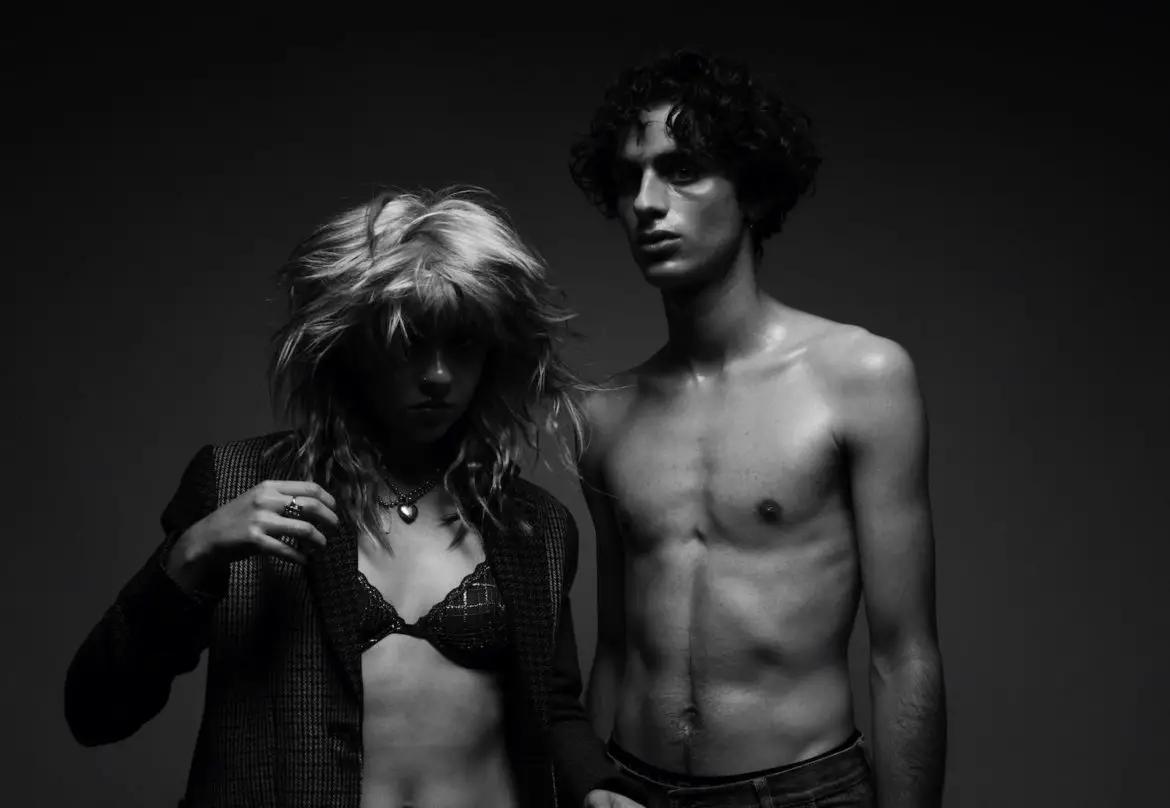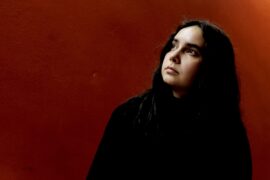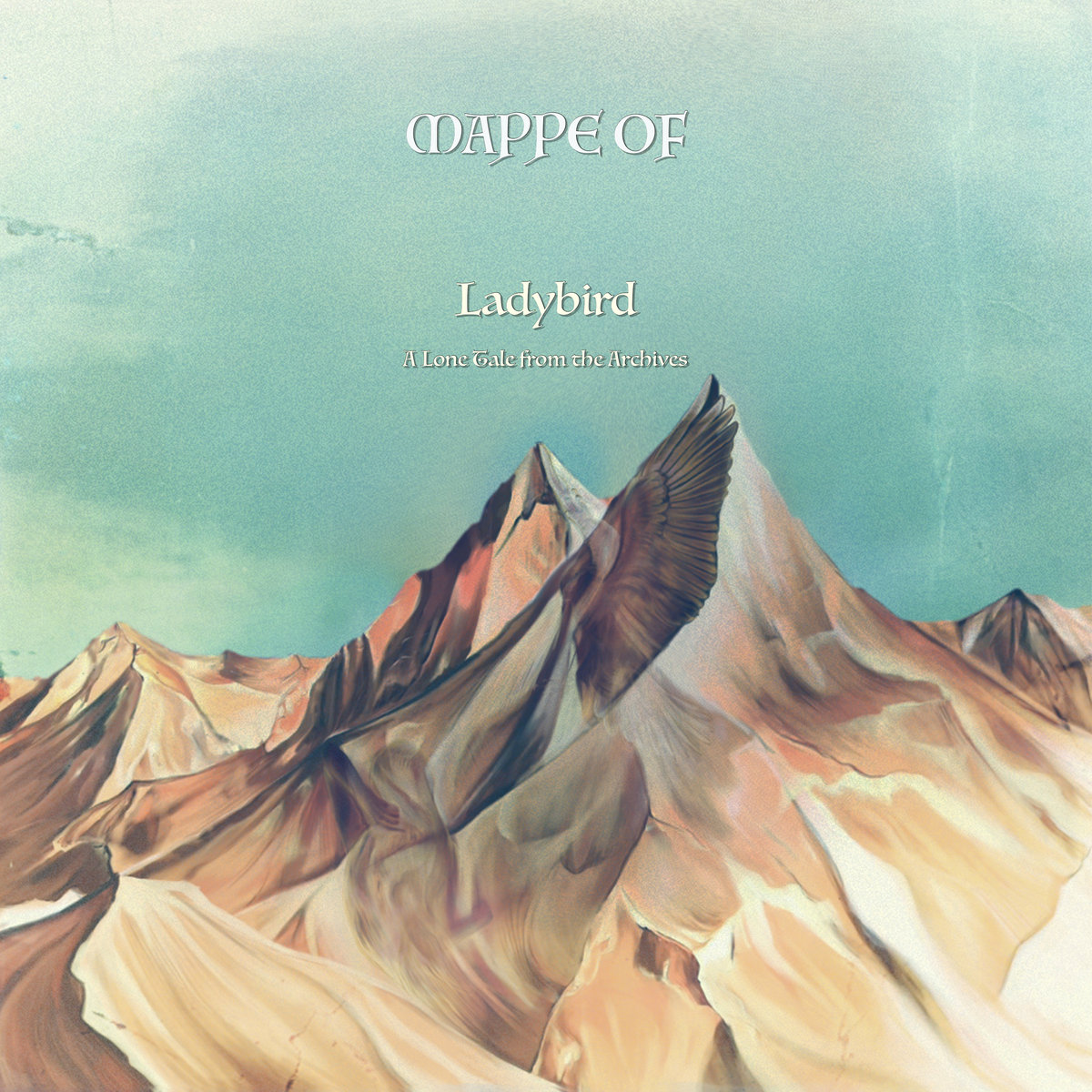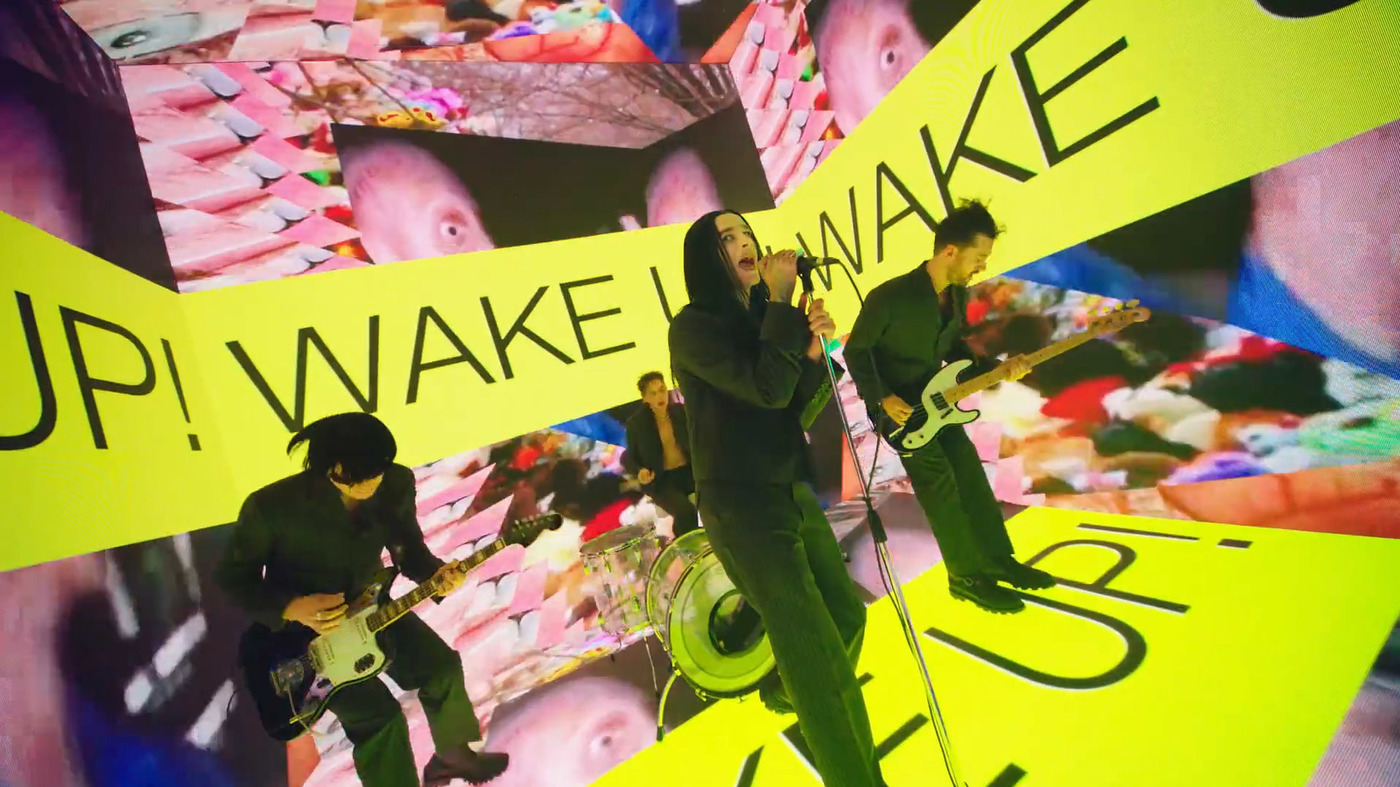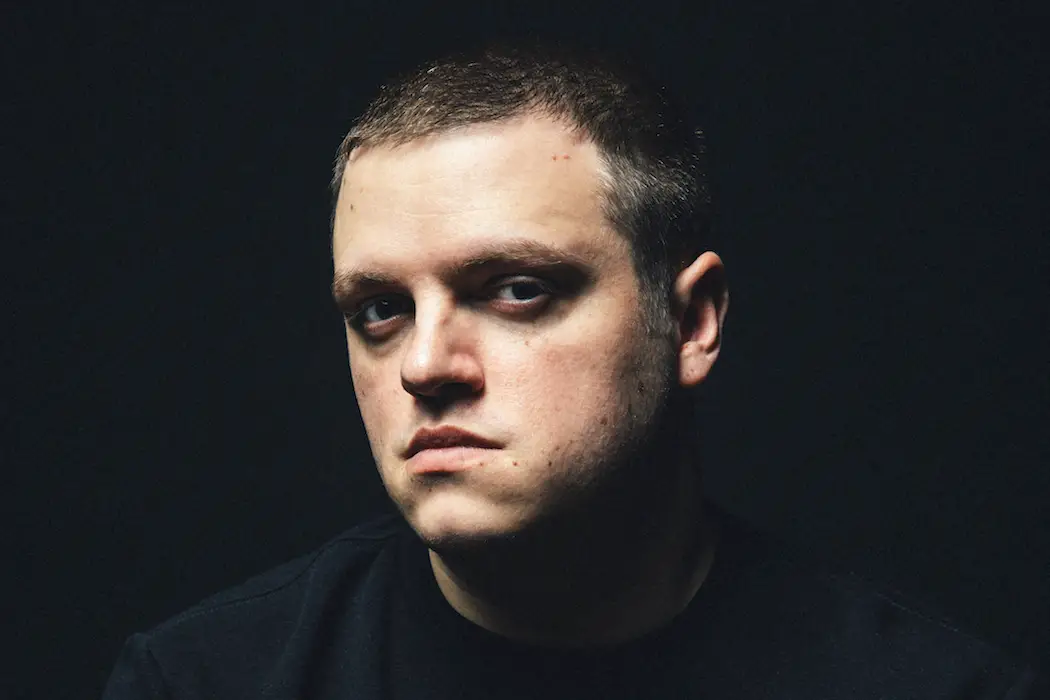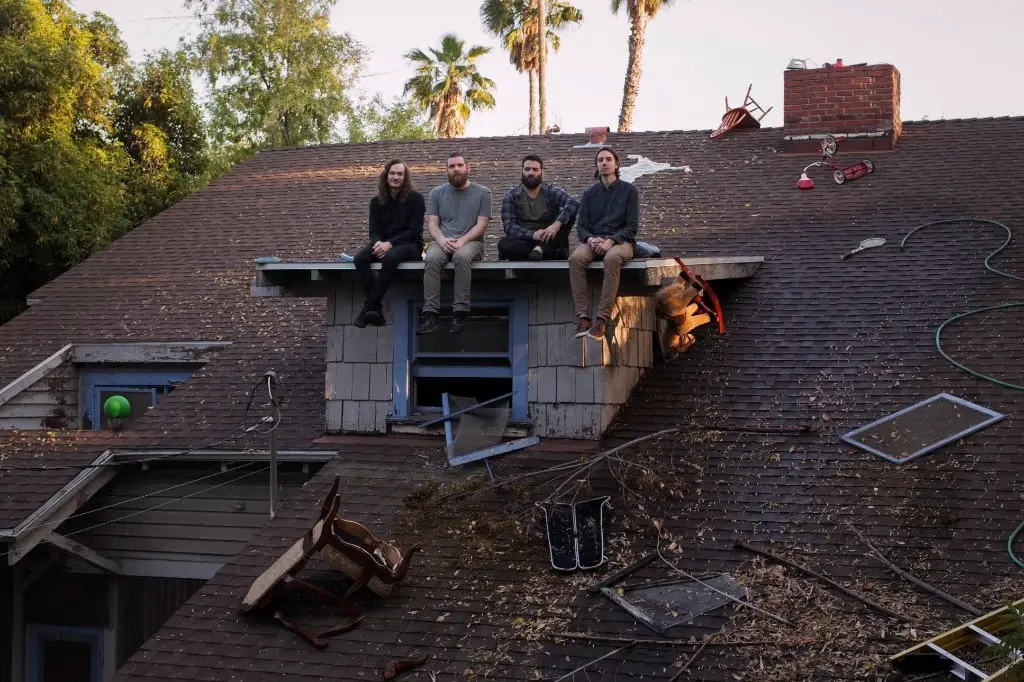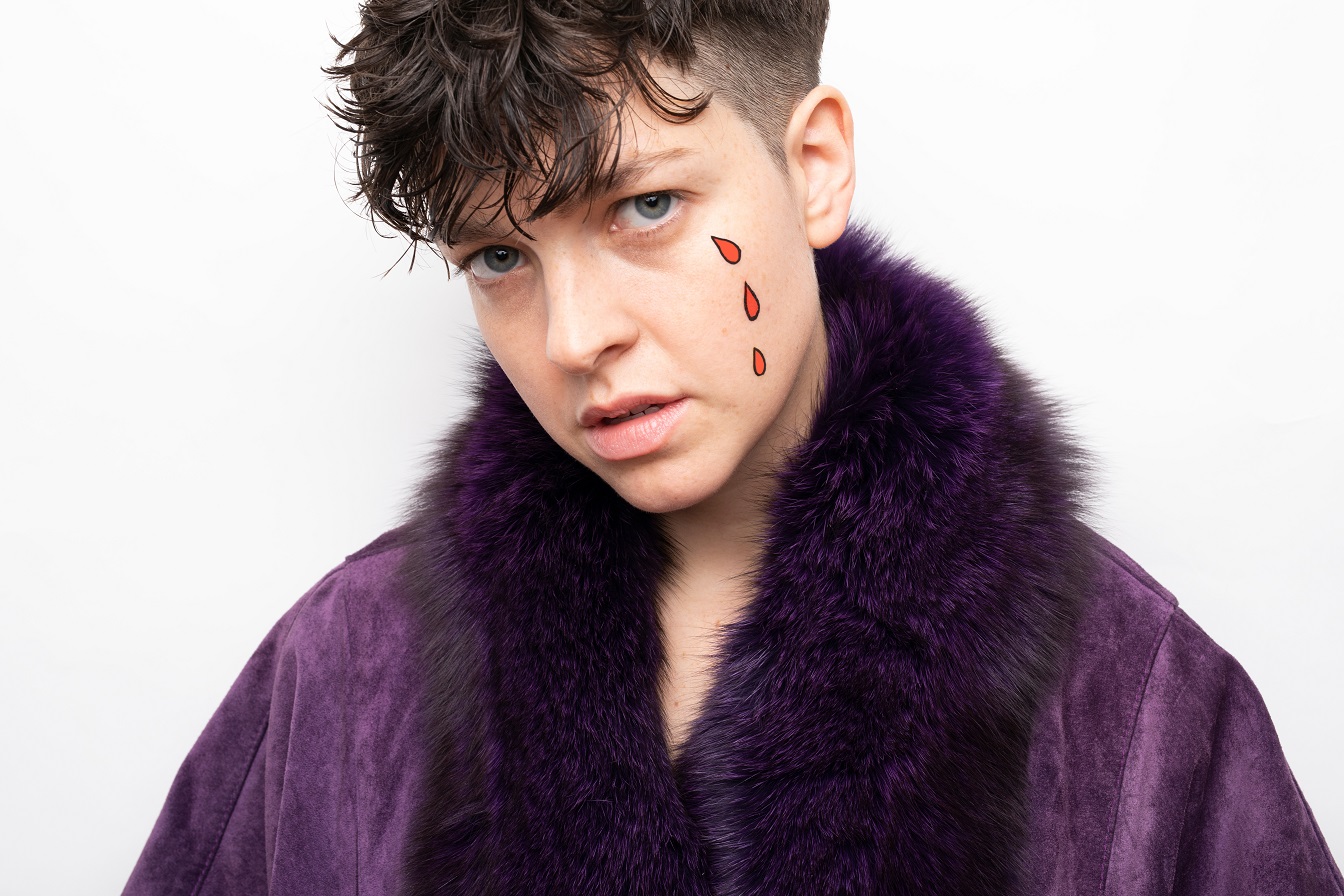Olive Osby and Avsha Weinberg of bedroom punk band Lowertown sat down with Atwood Magazine to discuss their debut album ‘I Love To Lie,’ life on tour, and coming of age.
Stream: ‘I Love to Lie’ – Lowertown
Because we’re so volatile at the age that we are right now, we’re not comfortable or secure in who we are as people. And I think with that we’re finding ourselves and we’re writing this music which is as close to our personal selves as it can be.
– Avsha Weinberg, Lowertown
Delightfully raw and beautifully chaotic bedroom punk band Lowertown have listeners enraptured by their honesty and vampy guitars.
The duo’s debut album I Love To Lie, released October 21, 2022 via Dirty Hit, encapsulates that delicate balance immaculately.
The opening track of the album “My Friends” is the quintessential Lowertown song, featuring grainy, thrashing guitars and raw vocals with a beat that demands you to head bang.
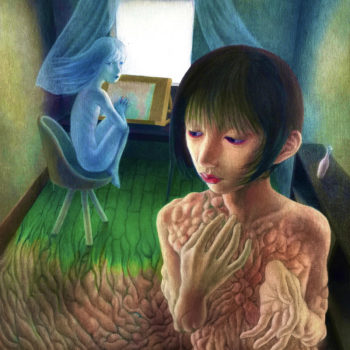
My friends are thicker than blood
My friends will drive me around then leave me in the mud
My friends know I don’t know who to trust
They tell me, check their pulse and
Say that should be good enough
They ask me to confess
Which of them I like the best
My answer would be no one
All of my friends I detest, I detest
– “My Friends,” – Lowertown
Comprised of Olive Osby and Avsha Weinberg, Lowertown are making waves, bringing their punk rock attitudes and formidable stage presence to indie rock. Opening for the likes of Wet Leg, Porches and Beabadoobee the duo create a completely unique live show experience at every show.
Lowertown are artists in motion, transforming genres, refining their craft and breathing new life into their music with every performance. Atwood Magazine caught up with the band following the conclusion of the Beatopia tour to discuss their musical journey, sharing your raw, unfiltered self in song, and curating unique live show experiences.
— —
:: stream/purchase I Love to Lie here ::
A CONVERSATION WITH LOWERTOWN
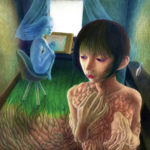
Atwood Magazine: Hey Lowertown! You just rounded off your supporting tour with Beabadoobee how have you been since being back?
Olive Osby: Good. I’ve been really low-key. I got sick for about two and a half weeks, like the day that tour ended. I’ve just been writing a lot of music and in my apartment ever since because it’s nice just being in one place and having alone time, you know?
Avsha Weinberg: I’ve been on probably the exact opposite wave. Where I got back and got super antsy to do stuff. So I’ve been going since the second I got back. I’ve just been exploring the city a little bit because we’re in New York now. I saw family for the holidays and now I’m back and I’m kind of going all over the place. I’m leaving for a trip to Italy in a couple of days.
You balance each other out. Lowertown has a very DIY, unique sound and you’ve definitely explored genres from bedroom pop all the way to punk. How would you guys describe Lowertown’s sound?
Osby: Yeah, it definitely has changed a lot over time. It used to be Lo Fi, bedroom, indie stuff and now I feel like this newest album is a combination of punk and… I don’t know, how would you describe our softer stuff?
Weinberg: Bedroom, punk, and indie.
Osby: That’s a good combo.
Weinberg: We always have kind of a tough time finding descriptors for the music. But it’s all of those different things together.
”Going
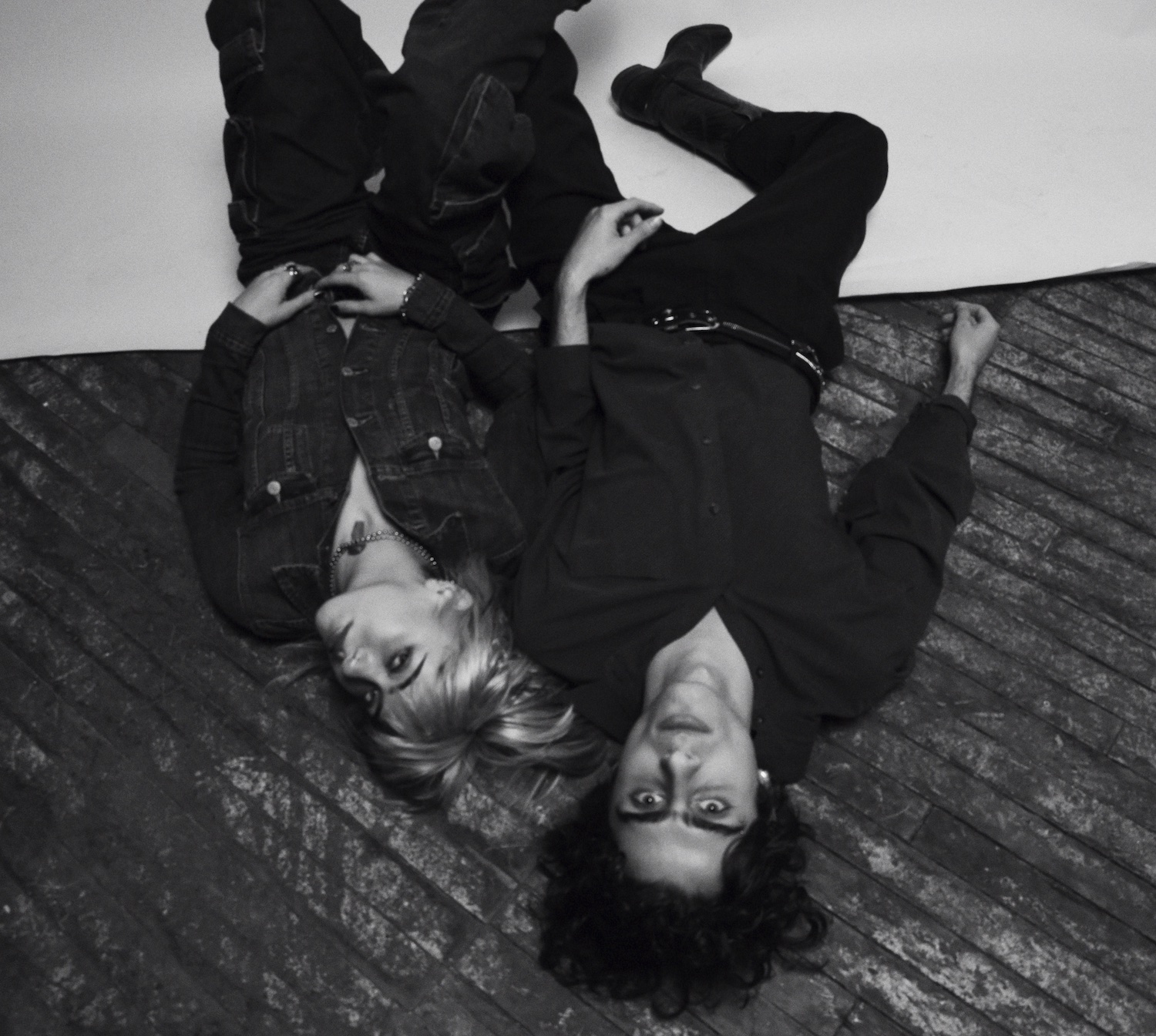 Lowertown © Shervin Lainez[/caption]
Lowertown © Shervin Lainez[/caption]
So you mentioned that you met when you were sixteen. How do you think your high school selves would react to Lowertown’s success?
Osby: Really surprised. Ever since we started the band, I believe that it could be something really cool. But it definitely surpassed my expectations in every way. All of the things that I had dreamed of doing when I was in high school, we’ve done. Playing [SXSW] which was the first music festival I ever went to and going on tour, those are just dreams of mine that I never thought would come true. So it’s sort of insane and I honestly don’t believe this is my life half the time. Which is still really crazy.
Weinberg: I don’t feel super separated from my [high school] life trying to make it in music. I am really happy about it right now and I’m so excited that I’m able to live off of what I’m making which is an amazing, amazing thing to happen. I still feel like I have that sense in me that’s like “Wow, this is an insane thing that’s happening to me right now.” And I’m just excited right now in the moment.
Is there anything you would say to a sixteen-year-old you, dreaming of doing what you're doing?
Osby: Be patient. Make music for yourself. And people may not get it at first, but eventually they do if what you’re doing is for you, and also doing something different. It just takes a little bit more time if you’re not conforming to what’s popular in that moment, or what you think people will want to view.
Weinberg: Be patient. That’s a big thing. For so long we got so anxious that stuff wasn’t gonna work out. And then we’d have to split up and it’d be much more difficult to sustain the band. But understanding that patience is super important with creativity. But also understanding that no matter what, if this is what you want to do, it will happen. You can do whatever you can to make it happen. Trust that you will make it happen.
All of the things that I had dreamed of doing when I was in high school, we’ve done… It’s sort of insane and I honestly don’t believe this is my life half the time.
You both started with different creative outlets with Olive turning to poetry and Avsha you have a background in classical piano. Have you found that those influences show themselves in your creative process at all?
Weinberg: Yeah it’s very, super still relevant. Liv’s writing is very poetry oriented, even the instrumentals that she writes are very poetic in its style and structure. And I would say that my songwriting as well, my instrumentals, it’s all based in the context of classical and jazz and everything that that kind of raised me. I don’t think it’s very difficult to find something that shows that classical and jazz are still very important in the structure and creation of our songs. And Olive’s songwriting is very poetry oriented and very reminiscent of the writing that she’s done and is still continuing to do.
Osby: I think the lyrics and the message of the song is the most important thing. Even for the musical aspects the writing is super important. I’m very lyrics first for a lot of my songs. Which is cool because I think [we’re] a really good combo because for him, he knows so much music theory and has a lot of technical ability. I’m just very flowy and very feelings oriented and he’s very knowledgeable about so many different things. It’s like if English and Science class came together. It makes a really good combo.
Your first record, Friends, was super stripped back bedroom pop and your newer music is a lot more punk inspired. What prompted that genre shift for you? Or was it a gradual thing?
Osby: When I lived in New York for the first time, we were definitely hanging out with a lot of musicians and going to a lot of punk shows. Living in New York definitely changed us as we were getting older. We moved there when we were nineteen which is a very important year for developing and everything. And I think it just sort of made us a little bit tougher and a bit angrier at times, and a bit more outward. Because I think usually Avsha and I handle emotions very inwardly. But I think living in New York made me a bit angrier and a bit more outward towards the world. And we had got really really into learning about the punk scene in New York and the new wave scene here and all the really weird underground music that’s been happening since the 70s or even the 60s. It was definitely a big influence. We were also watching a ton of punk movies from that time. And I think it just made me really just start to want to make music like that, because I felt really angry and it felt like a good outlet.
Weinberg: I think the most perceptible thing of the stuff that we’ve been writing lately is that it’s just very reflective of our age. Because of how much we’re moving, and how many things that are happening to us during these very important years, eighteen to twenty four. It’s a lot more raw, unfiltered emotion. I think that’s always been our calling card. But because a lot of our stuff is very raw, and exactly how we’re feeling at the moment, the genres can flip and change. Because we’re so volatile at the age that we are right now, we’re not comfortable or secure in who we are as people. And I think with that we’re finding ourselves and we’re writing this music which is as close to our personal selves as it can be. So it’s going to change and it’s going to be evolving all the time, similar to our emotions and our environment. I think you can see how much [our music] has changed in just a few years, because these are such important formulating years.
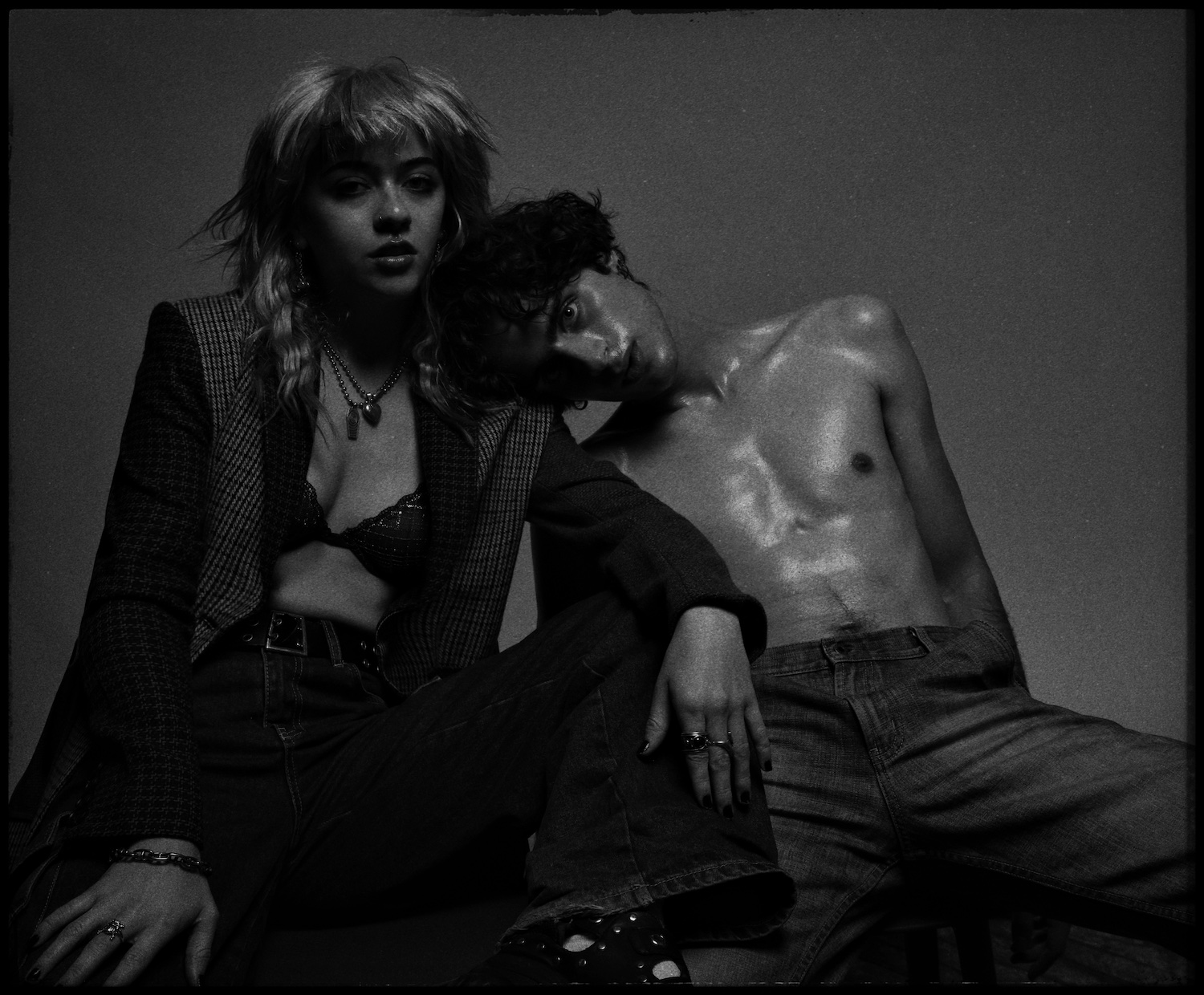
I think raw is a great way to describe Lowertown. How is grappling with the fact that thousands of people are listening to your raw unfiltered selves?
Osby: The bigger we’ve gotten and the more eyes we’ve had on us, I’ve definitely found it hard to be vulnerable at times. Usually my lyrics are very emo and I just write how I’m feeling. And it’s just easy because I’m used to putting it out into the void and not really interacting with the world in the sphere of my music. That’s how we started doing music in high school, there’s a big separation between you and the internet, you have a veil. But now doing live shows, it’s really weird, because I’ll be singing the lyrics out loud that I wrote when I was seventeen. I’m like ‘Wow, I’m really just just really out there, this is sort of embarrassing sometimes.’ But then I think about artists like Kurt Cobain, and all those people that really mean a lot to a lot of people out there and how honest and unfiltered they were. And it makes me feel a little bit better. Keeping that same energy as we’ve gotten more traction.
You both also pursue solo projects as Olivia O. and Avsha The Awesome. Do you find that there's a very big difference in your musical process when you create individually versus when it is together?
Weinberg: Everything originates from one place. I don’t go into something necessarily thinking that it’s going to be for us, or for a solo project. So I would say that it originates all from the same place. So the first kind of creation of the song is the same. But then once it’s established that it’s either going to be Lowertown or a solo project, the writing becomes completely different because we have complete control. The style and the way we write is so much different after that first point, but the songs originate from the same place, at least for me.
Osby: I’ll write a song and I’ll show it to Avsha like, ‘This is an awesome song, but I don’t know if it works for Lowertown,’ or he’ll be, “This is sick. I really want to do something with this, I see a big opportunity to make this develop into something crazy.” So definitely the kicking off point is the same. But the process after splitting off is very different. I’m very much more spontaneous and I feel very spur of the moment with my solo project. Lowertown is super methodical and we think about every single little detail, which is really nice and refreshing to do both of those things, because I get a lot out of doing the Lowertown process and a lot out of not overthinking things with my solo project as much. And I think it just makes them feel a very different vibe and stuff.
I saw you both open for Beabadoobee in December, the show was phenomenal! What was that tour experience like? Were there any highlights?
Weinberg: It was jarring, it was really crazy. We’ve never played to an audience like that before. It was great, it was such an amazing opportunity. It was really fun to figure out the audience basically. It was a different experience than the previous two tours we’ve done. We’ve done this all in the span of a year so we’ve been able to compare all three tours to each other. This was on such a huge scale, it was really intense and amazing, and a really good learning opportunity. I just love putting together the live version of our music, because I think it’s different from our recorded stuff a lot. And I really enjoy that aspect of it. The free reign of being able to decide how these ideas and the songs are going to be presented to the public, to their faces right there. So that aspect of it was really exciting and fun to be able to rework the songs and basically write a second version of the song that would fit the audience. A highlight…
Osby: The Atlanta show!
Weinberg: Yeah, true! The Atlanta halloween show, that’s our hometown show. […] We went really crazy with the dressing up. We got covered in blood and I walked out before the song before the show started with a cane. And I hobbled around the stage. And then everybody came out. And there was such a beautiful energy in the crowd of people recognizing that we were from Atlanta. […] That was a big peak.
Osby: Yeah, it was definitely one of the most intense experiences I’ve had so far. We’ve been on other tours but this one, I felt we were way more unhinged, creatively, emotionally and as people. Half the time it was a really good thing and half the time, it was really intense. It was just really long, it was a month and a half. And there’s not many break days; it was very physically taxing. But I think everyone came out of it a better person and a better artist. It was really cool playing to an audience that was so engaged. I definitely think sometimes our music was some of the loudest music some of the people we are playing have ever heard before, because for a lot of them it was their first show. It was really cool playing to younger people and having people come up to you and be like “this was the first show I’ve ever seen.” Or “I started playing guitar because of you.” Those moments, honestly, really affect me. And I think about them a lot. It was honestly, some of the coolest moments I’ve had so far in my life.
You guys had some great moments with the crowd at the Boston show! Olive, you were crowd surfing at a point. Were there any standout moments or fan interactions while on tour?
Osby: We had a few moments where some people were like “I started playing guitar because of you” which is really crazy to me. I’ve had some conversations with people that were like “I’ve never heard you before, but this was one of the coolest things I’ve ever seen.” Making new fans that way is really cool. And having Lowertown fans [at the concert] was really nice, we still haven’t done a lot of headlining shows so having our own fans there, freaking out, was really cool. When they opened up the pit, that was awesome. I crowd surfed the day before the Boston show for the first time. I think we were just going for it. And sometimes we’d fuck up. But we didn’t really care. That’s our vibe, it’s not planned out, it’s very spontaneous and very fluid. The moments where it works really well are super cool. And then sometimes the mess ups are just funny.
Weinberg: For me, I have a difficult time focusing on specific people in the crowd. It’s a very internal experience for me. Because it’s just a very good way to express myself, I just really like to move my body and because I’m moving a lot, I don’t really see anything. Just because nothing ever focuses on my brain, but it’s the best way I have to connect with the music. I really enjoyed moving and seeing people locked in on us. And I could kind of see myself going to shows when I was younger and I could see myself in them. Just looking at them and seeing this was the first time they were being exposed to this kind of art. I was so inspired when I was younger and I sensed that kind of feeling from people in the crowd.
Osby: I was thinking about all the concerts I went to when I was a teenager, and how I saw those musicians up there and I thought they were like, God. There were so many times where they would make eye contact with me or look in my direction and I’d freak out. And it’s so weird being up there thinking that these kids even think anything the same that I thought.
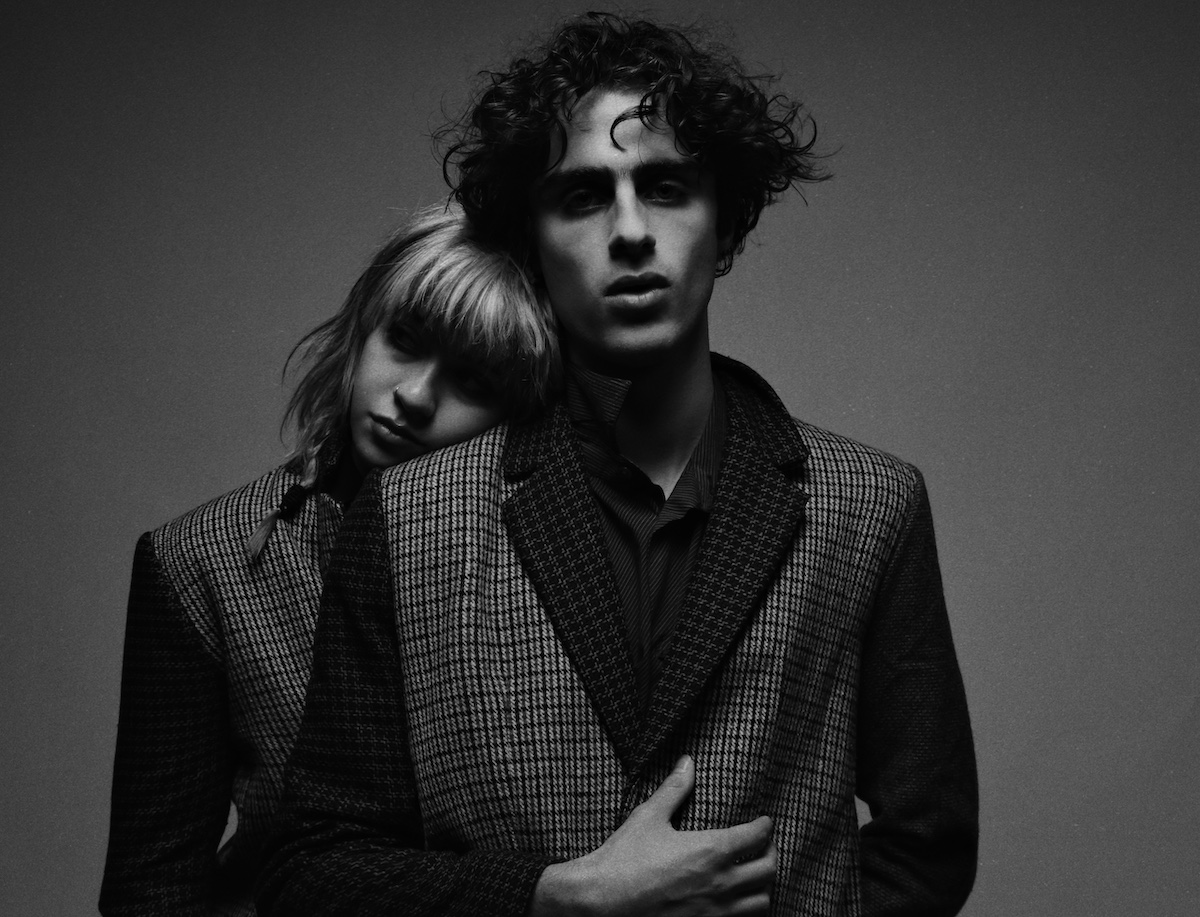
That’s our vibe, it’s not planned out, it’s very spontaneous and very fluid. The moments where it works really well are super cool. And then sometimes the mess ups are just funny.
The live versions of your songs are entirely different from the recorded ones. Your live rendition of “Bucktooth” particularly stood out to me as it was a complete 180 to the recorded version. Was there a particular inspiration to rework your songs or did that just come naturally?
Weinberg: It came naturally. I just love going to shows and hearing something unique. I’ve been going to shows since I was really young. And I remember as I got more shows under my belt that I enjoyed hearing something different than what I knew of these bands. Because it felt a whole new version of creative expression. And I think that comes from my love of jazz and on the spot improvisation. That’s how you get a more close and intimate view of these artists rather than them sounding exactly how they sound on the record. It’s like “okay, that’s awesome. But I could essentially play it on a really big speaker and have a similar effect.” The sound is really important to me and having a really exciting, new, fresh auditory experience is what spoke to me. So blending that improvisational on the spot thing with our more pop oriented music was really exciting and fun to experiment with. And I knew other people would understand and would start to feel that connection to a more genuine and clearer view of our artistic expression and us as people, rather than us just playing the song. Because, after a while, if you go to see somebody at the end of their tour you feel “oh they’ve done this a million times.” They’re just going through the motions.
Osby: It’s like they’re just clocking in
Weinberg: And that’s fine if you’re there to just listen to music and enjoy the experience, but I don’t want to be like that. I could pretty clearly see when people were at the end of their tour and ready to go. And I never wanted anybody to have that feeling from us. So I knew that that was going to be an important aspect of the band.
Osby: Yeah, I also just don’t want to feel that way either. I don’t want to get up and feel like playing music is a chore. Obviously, there’s some days where you’re just not feeling it, or you’re feeling bad physically, and you just have to do it. But it would suck if my average day on tour was “Alright, I have to do this show. I don’t really want to do this. But I have to.” There’s a different fun and different beauty that I think we found in live music. I mean, I didn’t get into music at all to perform, I didn’t even think it was possible for me to do that. Viewing live music in a different way than the writing process is super fun and a different form of creative expression. It’s fun to switch it up all the time, because it keeps it fresh for everyone. And it’s exciting.
You guys released your album I Love To Lie last year. It’s a fantastic record. What was a highlight of creating that album together?
Osby: Man, that one was a long process, I feel like we went through twenty million songs.
Weinberg: A highlight for me, I think was being able to feel proud of the album. It was such a tumultuous recording experience. Because we had gotten sick, we had to do some remote recording when we were still in London. And it was a really visually dark period. We were in London in the wintertime, and it was always dark. And it felt like we were going through something really difficult. It was a very tumultuous emotional experience. Every day felt like three weeks worth of emotions and experiences. And having to give effort in order to connect to ourselves musically through what was happening in our surroundings. I think the compiling process [was fulfilling]. We had a bunch of songs, we had been able to record a lot, but not everything we wanted to do, in London. And we ended up putting a couple of tracks that we had tracked in Atlanta, in my basement. Being able to put it together and seeing the image that we had before recording the project. And seeing it, and being really proud of it and being able to listen to it and genuinely enjoy it as a work of art outside of ourselves was a really exciting thing and a big highlight for me.
Osby: I feel the same way. I think with all of our music beforehand, there has always been something I wish I could do or feeling like I don’t have the technical ability to. I’m just always very self conscious of what I make, artistically because it’s very vulnerable and it’s scary to share that. But this one I was like “Yeah! Let’s play these, let’s run these songs.” It was really cool playing something and being able to sit there in the room and not cringing at it. I’m looking back at all the projects and I’m super proud of all of them but this one I just felt the moment it was finished I was like “I love this! I’m gonna listen to this non stop.” And I usually can’t listen to my music after it’s finished. It’s so hard for me. So that was really cool.
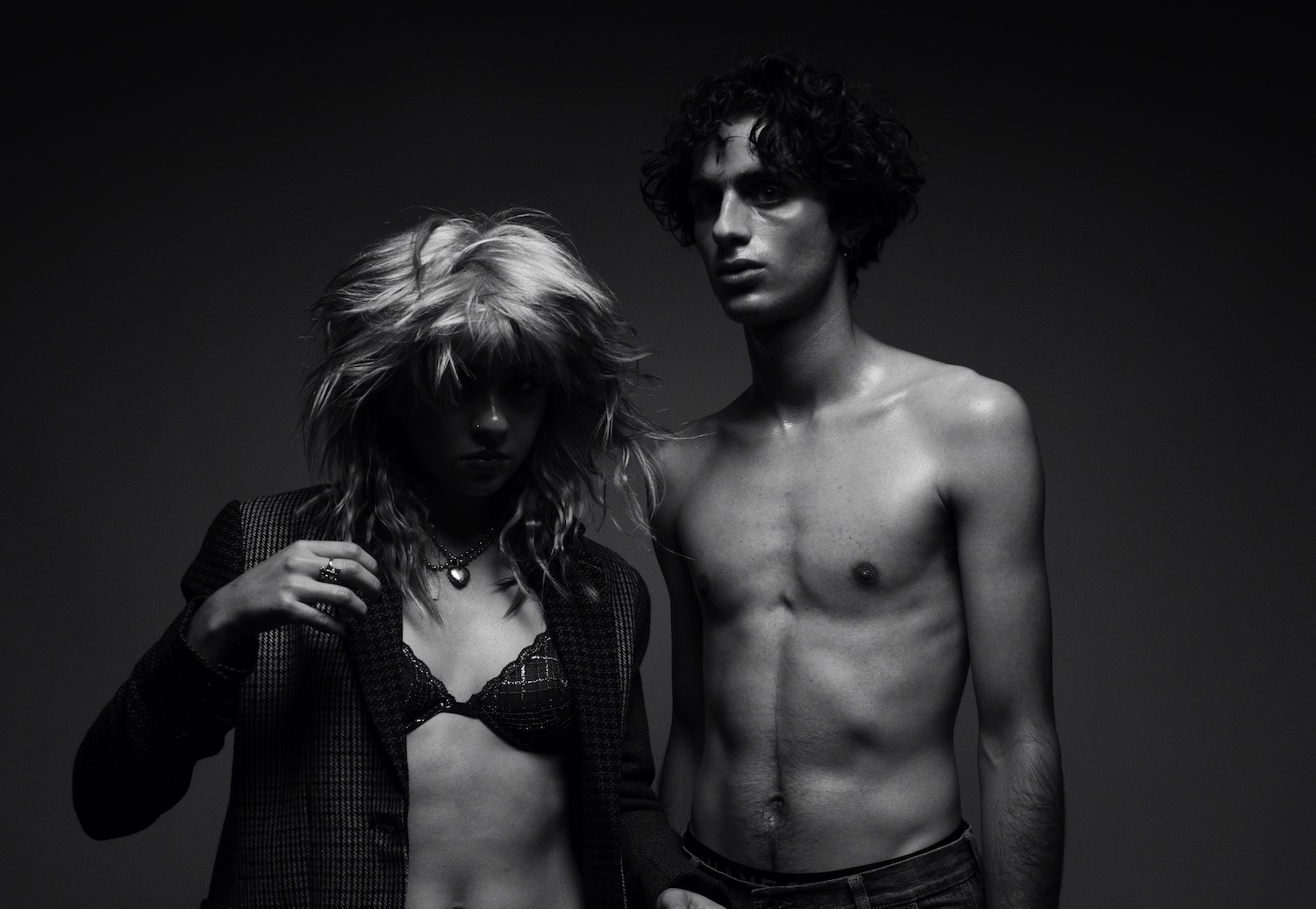
It was a really visually dark period… It was a very tumultuous emotional experience. Every day felt like three weeks worth of emotions and experiences.
What's next for Lowertown?
Osby: We’re working on a new project together. We are just getting back to writing. And hopefully a headlining tour this year. That’s in the books.
Weinberg: A headline headline tour is the main thing that’s up next for us. A small, mini headlines tour and then support tour and a lot of writing well. Our audio tree is coming out soon, which I’m really excited about. I think that’s the best captured live performance of ours.
Osby: I definitely agree! I’m also dropping solo music soon. I have an album I’m going to drop.
Weinberg: I’m also making a change to my solo name. It’s simpler. It’s a little shorter.
— —
:: stream/purchase I Love to Lie here ::
— — — —

Connect to Lowertown on
Facebook, Twitter, Instagram
Discover new music on Atwood Magazine
? © Shervin Lainez
:: Stream Lowertown ::

